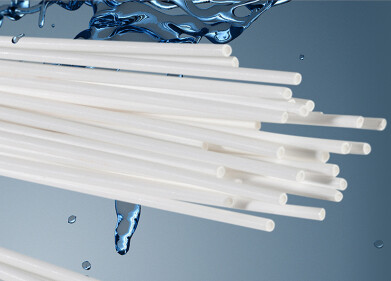Waste management
Are Coffee Shops Tackling Pollution?
Oct 23 2017
Coffee shops all over Britain have come under fire from the Environmental Audit Committee, who claim the industry is not doing enough to curb plastic pollution caused by their cups. Citing the statistic that 2.5 billion disposable cups are used each year in the UK, the committee’s chair Mary Creagh pointed out that only 1% of that figure is recycled. The rest goes into landfill or finds its way into our oceans and rivers, thus exacerbating the damaging effect that the coffee industry has on the planet.
A booming industry
On-the-go coffee has become exponentially more popular over the last few years, resulting in a booming industry for Britain’s coffee outlets. At present, there are roughly 20,000 outlets across the nation, with that figure predicted to swell to 30,000 by 2025.
In order to deal with the demand, we use around 2.5 billion disposable cups each year, and we’re expected to break the 3 billion barrier by 2025. Given that only 1% of that total amount is recycled, a substantial amount of plastic and other unbiodegradable materials end up in our environment after being discarded.
While the bioremediation of contaminated soils with fungi and other natural resources has been touted as one way to address our increasingly polluted land, surely it would make more sense to prevent such large amounts finding their way to landfill in the first place.
“A big responsibility”
Speaking to a committee of MPs, Mary Creagh said that the runaway popularity of take away coffee was having a debilitating effect on the environment and that “these coffee shops have a big responsibility under the producer responsibility obligations to provide proper recycling facilities and they are in breach of them.”
One possible solution that was suggested was the outright prohibition of disposable cups in outlets, or the imposition of a levy for their use (as is now common practice for plastic bags in supermarkets and the suchlike). However, Costa Coffee has publicly opposed such ideas, instead claiming that it is currently tackling coffee cup waste by making it easier to recycle one-use cups from its own stores and from rivals.
At present, depositing a single-use coffee cup into a normal recycling bin does not ensure it will be properly recycled, since the mix of plastic, paper and other materials in its composition makes it more difficult to deal with.
Alternative solutions
Another approach to the problem has focused on the cups themselves, rather than recycling methods. Frugalpac is a company dedicated to making 100% recyclable coffee cups and presented their business model to the committee.
“We decided it was the cup that was the problem not the recycling system, so we have designed our cup so it can go in any bin and be recycled in any mill,” explained Martin Myerscough, founder of the company. “It’s a completely scalable solution. The cups are the same price, they look the same and they taste the same.”
Meanwhile, a similarly innovative set of German researchers have looked at manufacturing soluble milk and cream pods as a means of reducing waste from the coffee industry. Since the additive can be dropped directly into the cup, there’s no additional waste from its containing pod.
Events
Apr 30 2025 Ankara, Turkey
May 11 2025 Vienna, Austria
May 18 2025 Algiers, Algeria
23rd International Water Management Exhibition
May 20 2025 Prague, Czech Republic
Singapore International Water Week Spotlight 2025
Jun 23 2025 Singapore














